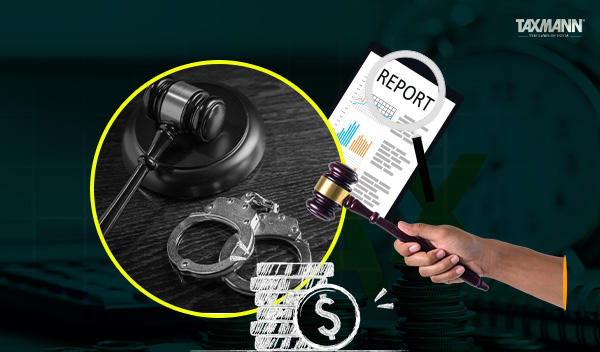CBDT Issued FAQs on Revised Guidelines for Compounding of Offences Under Income-Tax Act
- Blog|News|Income Tax|
- 2 Min Read
- By Taxmann
- |
- Last Updated on 19 March, 2025

Circular no. 04/2025, dated 17-03-2025
The Central Board of Direct Taxes (CBDT) issued revised guidelines for the compounding of offences under the Income-tax Act, 1961, on October 17, 2024 replacing all previous guidelines. These apply to both pending and new applications.
Key changes include removing offence categorisation, lifting limits on the number of applications, allowing fresh applications after curing defects, permitting compounding of offences under sections 275A & 276B, and eliminating the 36-month application deadline.
To enhance stakeholder awareness, the board has issued clarifications via a Circular in the form of FAQs. Below are the key clarifications issued through FAQs:
1) Simplified Compounding Process
- All offences under the Income-tax Act are now compoundable, unlike earlier guidelines that restricted certain offences.
- No limit on the number of compounding applications. Applicants can reapply even after previous rejections, provided defects are curable.
- No time restriction for filing applications. Earlier, it was limited to 36 months from complaint filing.
- Compounding does not mean admission of guilt; it is a settlement mechanism to avoid prosecution.
2) Application Process and Fees
- Applications must follow the Annexure-1 format and be submitted with an affidavit on Rs. 100 stamp paper.
- Pending applications before October 17, 2024, do not require fresh fees.
- Rejected applications due to defects can be refiled but will be treated as a new application and may incur higher charges.
- Fees paid for one offence cannot be adjusted against another application, even if related.
3) Compounding Charges and Payment
- Compounding charges are non-refundable but adjustable against the same offence.
- Subsequent applications incur higher fees, 1.2x for the second application, 1.4x for the third, and so on.
- Applications filed over 12 months after prosecution initiation will see a 50% charge increase.
- Litigation and prosecution establishment expenses have been removed from compounding charges.
- Payments must be made through the Income Tax e-filing portal.
4) Withdrawal and Refiling of Applications
- An application can be withdrawn and refiled, but the refiled version will be treated as a new application with increased charges.
- Applicants do not need to withdraw appeals before applying for compounding but must submit an undertaking to do so if compounding is granted.
5) Cases Requiring Higher Authority Approval
- Convictions with imprisonment of two years or more require the CBDT Chairman’s approval.
- Offences involving the ED/CBI are compoundable, provided there is no involvement in anti-national or terrorist activities.
6) Treatment of Co-Accused and Corporate Cases
- Co-accused can apply separately or jointly with the main accused, and their applications will be processed independently.
- If the main accused (e.g., a company) is under insolvency proceedings, the liability of the co-accused remains.
- A single compounding fee applies for both main accused and co-accused; no separate fee is required.
Disclaimer: The content/information published on the website is only for general information of the user and shall not be construed as legal advice. While the Taxmann has exercised reasonable efforts to ensure the veracity of information/content published, Taxmann shall be under no liability in any manner whatsoever for incorrect information, if any.

Taxmann Publications has a dedicated in-house Research & Editorial Team. This team consists of a team of Chartered Accountants, Company Secretaries, and Lawyers. This team works under the guidance and supervision of editor-in-chief Mr Rakesh Bhargava.
The Research and Editorial Team is responsible for developing reliable and accurate content for the readers. The team follows the six-sigma approach to achieve the benchmark of zero error in its publications and research platforms. The team ensures that the following publication guidelines are thoroughly followed while developing the content:
- The statutory material is obtained only from the authorized and reliable sources
- All the latest developments in the judicial and legislative fields are covered
- Prepare the analytical write-ups on current, controversial, and important issues to help the readers to understand the concept and its implications
- Every content published by Taxmann is complete, accurate and lucid
- All evidence-based statements are supported with proper reference to Section, Circular No., Notification No. or citations
- The golden rules of grammar, style and consistency are thoroughly followed
- Font and size that’s easy to read and remain consistent across all imprint and digital publications are applied



 CA | CS | CMA
CA | CS | CMA
